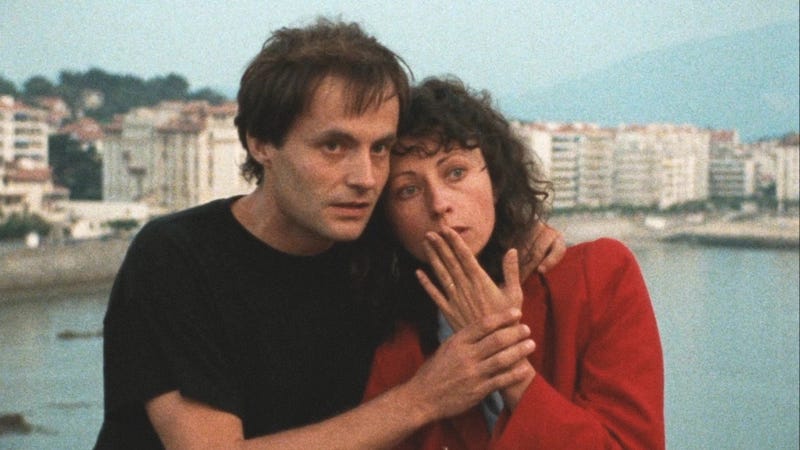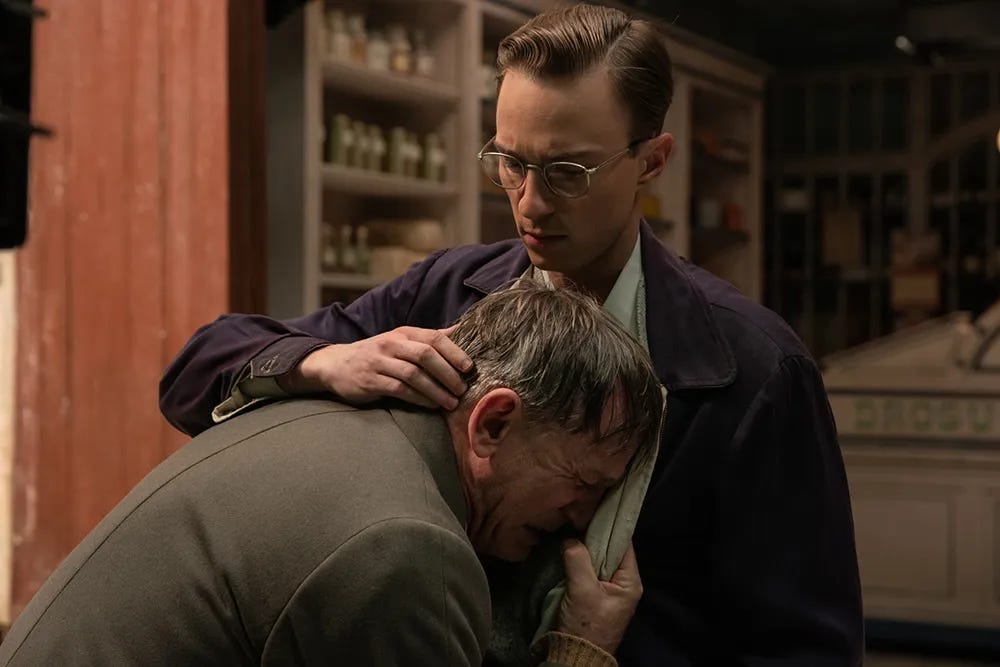#17: Pursuit of Life and Nothing More
Purpose.
Larger expectations would tell you that you need to have everything figured out as soon as humanly possible. Your career, your life partner, where you’ll live. Carve it into stone now. As that time falls down the hourglass, I find myself doubting my ability to feel normal, unable to chase the narrative I grew up on. What resulted was an inescapable force of desperation and loneliness where there should have been curiosity and exploration in my life.
What is success? Money? Friends? Love? At the end of it we make our own definitions, though it takes many trials and tribulations to get there. Often, I sought escape instead of finding a foothold on the wall that was the unknown. Instead of facing the possibility that my life had no value as I understood it. Though heightened now with social media—a constant screen of external appearance—we are unable to take a moment to explore what’s inside. At one point in history or another, anything became an excuse to look the other way.
Better to turn our faces than live in constant terror of who we might become.
Éric Rohmer’s The Green Ray is a somber look at the the hopeless, frail mind of someone who is alone. It does not seem like it on the outside. Delphine, our 30-something protagonist, has friends, a loving family, an implied on-off boyfriend. But everything is not as it seems. Truth of the matter is, she is crushed. She desires true connection—no one-night-stands or lady-killers—people confront her and label who she is for her, many of them strangers. Surrounded by people, Delphine is alone.
Towards the end of the film, Delphine is at a beach resort, surrounded by folks from across the continent, the world, and she doesn’t utter a word. Though in a sea of human kind, she is the only person who exists.
What painfully resonates with me is Delphine’s passion. She is stalwart in her admirable beliefs, and truly believes them. However, rarely is she able to articulate them as she wishes to. She starts strong several times when asked about her views—on life, her values— but for one reason or another, perhaps the overwhelming nature of the themes at hand, she trips over words and sometimes drives herself to tears. As comfortable as she gets with someone, old or new, a snap decision to flee always comes.
It takes time. Sometimes we actively seek it as it manifests for others. People call or think of Delphine as many things, but “disingenuous” is not one of them.
We make mistakes. We’re only human. In fact, choosing and learning from those mistakes is perhaps the most humane thing we can do. An act of defiance. A quiet rebellion.
Expatriate.
What comes to mind when you think of one? Refugee? Outlaw? Vacationer? Traitor?
In Queer, Lee (Danie Craig), defines himself as disembodied.
2 for 2 this year, director Luca Guadagnino delivered another transcendental romance in this adaptation of the William S. Burroughs novel.
Though he escaped from a criminal charge from his country, Lee wanders Mexico City, and soon greater South America, shackled. Self-imposed baggage of misplaced obsession, purpose, and a raging heroin habit addresses the fissures ruptured in the pursuit of higher standing. Lee doesn’t balance on the tightrope into the unknown; he swan-dives into the abyss with no regard for safety.
Unlike Delphine, Lee is willing to destroy himself to define and obtain what he has lost. Whereas Delphine is shy and hides her loneliness, Lee’s desperation is explosive and kaleidoscopic, but above all else, sensuous which soon evolves into a homoerotic, jungle-fever folk tale. It is here where his soul, where our souls as viewers, are truly tested for what they seek.
Rigorous pursuit defines our notions of obtaining purpose. Take it while you can get it, and don’t let go. Are others struggling? Who cares? Seeing yourself at a higher level than where you are, and not being able to obtain that standard, destroys people. It makes us eat ourselves alive. All those days pass, each minute wasted a curse on us for being born.
All we need to do is start by looking inside, and breathing. Be proud and efficient at what you do have, and what you want will evolve and inevitable bear fruit, as long as we are true to ourselves and to others.
Things I’ve Enjoyed:
Speaking of sad stories made for horny loners, I finished Haruki Murakami’s Trilogy of the Rat on winter’s eve, and have begun perusing the story’s grand epilogue: Dance, Dance Dance. It is interesting to see Murakami start to toy with the magical realism he is known for today. Only traces whispered through the pages starting with Pinball ‘73—the second novel. The epilogue, by comparison, is a chaotic nihilist fever dream of murder and sheep men. Yes. Sheep men. Of course, I have to agree with the modern consensus to how Murakami writes his female characters. Long story short, every woman is written to eventually have sex. In the trilogy’s case, usually with the unnamed protagonist. There is a strong argument that this is an inditement of his generation’s view of feminism—the protagonist isn’t the most likeable character—but some things stretch the line too far out.
You really hate to see it, but Gladiator II sucked. I think it’s time we admit that Ridley Scott has lost the juice. Seriously, Ridley, it’s okay. Go enjoy a beach house or complain on a Film Festival jury; whatever it is retired filmmakers do. Many of his crew have commented on Scott’s increasing laziness on set, and it shows. Gladiator II is at best incoherent. A solid premise butchered in execution. Plotlines and characters discarded like flower petals. Editing that actually hurts the eyes. Utterly incoherent mood… and HOLY SHIT no sense of continuity. There are several instances where hairstyle and makeup on certain characters change mid-scene. IN. THE. MIDDLE. OF. A. SCENE. The so-called “epic” bears one strength: my god the acting rules. Where all else fails, the actors unanimously bring their A-game. I don’t mean place my chips early, but I think Denzel gives one of his all-time greater performances. What a shame it is used for such an underwhelming endeavor.
I’ve been revisiting Death Stranding recently. The game, which recently celebrated its 5—year anniversary—is a science fiction epic where you make deliveries.
Yes.
You heard me right.
You play as Norman Reedus, the UPS driver of the future.
And it’s great.
A staggering commentary about connection and the internet, I cannot put what I fully think about this game into words. So let me tell you a story.
Most often, you will travel the post-apocalyptic landscape with nothing but a good pair of boots and an Amazon package. Much was my case in this late-game run. In Death Stranding, water is an enemy. Rain damages what you carry, and rivers you wade through can wash you away with one bad step. And then there is snow.
I came upon a mountain range I was not ready for. The knee-deep powder sucks your energy, makes movement nigh-impossible. Everything hugged by the white blanket looks the same, so inevitably, I became lost. But that’s where the game’s “multiplayer” came in. You don’t see other players, but you can see where they’ve been. Footrails, dropped items, and in this case, alert signs and a rope. A simple sign pointed me in the direction of a player-placed rope that helped me traverse the mountain in half the time and difficulty it normally would have been. At the summit, I placed a sign of my own, pointing to the easiest trail. Much later, on another route, I ran into the sight again. The mountain trail was coated in signs marking the entirety of the trail for deliverymen to come.
It’s a beautiful experience.
When people tell me video games can’t be art, i tell them this story… and a cutscene from this game of Norman Reedus drinking Monster Energy. Yes. That is something you can do.






